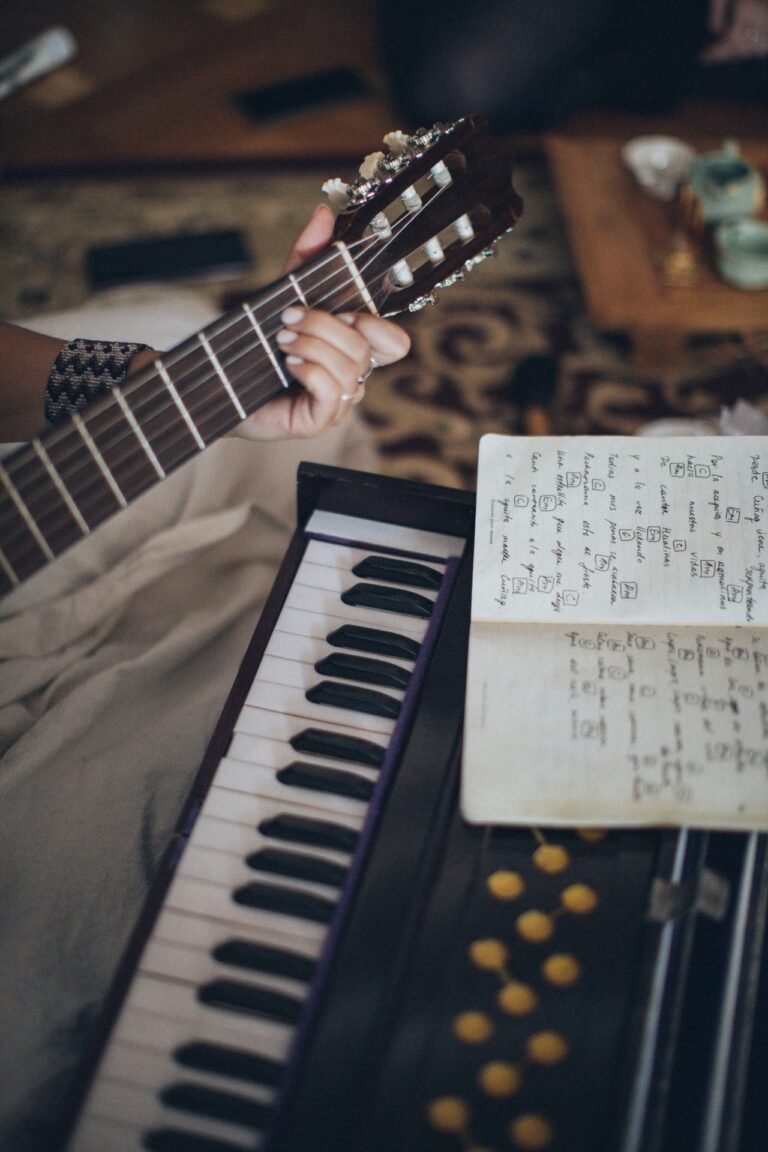Artificial Intelligence (AI) has revolutionized numerous industries, and the world of music is no exception. AI songwriters are transforming the way we create music by offering innovative tools and capabilities that augment human creativity. With advanced algorithms and machine learning techniques, AI songwriting systems are changing the music industry, enabling artists and composers to explore new avenues of creativity and expand their artistic boundaries. In this article, we will delve into the ways in which AI songwriters are reshaping music creation and explore their impact on the industry :
1. Enhanced Songwriting Assistance:
AI songwriters provide valuable assistance to musicians and composers during the creative process. These systems can analyze vast amounts of musical data, including melodies, chord progressions, and lyrics, and generate suggestions or even complete sections of a song. By leveraging AI, artists can explore unique ideas and experiment with different musical elements, leading to the creation of innovative and captivating compositions.
2. Unleashing Creativity:
AI songwriters act as powerful tools for unleashing creativity. They can generate melodies, harmonies, and chord progressions that human composers might not have considered. This opens up new possibilities and helps musicians overcome creative blocks. AI-generated ideas can serve as starting points, sparking inspiration and allowing artists to build upon them with their unique touch, resulting in fresh and captivating music.
3. Time and Efficiency:
Traditional songwriting can be a time-consuming process, requiring extensive trial and error. AI songwriters streamline this process by generating musical ideas quickly and efficiently. Artists can save valuable time by utilizing AI tools to create foundations or even entire compositions, enabling them to focus on refining and adding their personal touch. This efficiency allows musicians to explore more ideas and experiment with different styles and genres.
4. Collaboration and Co-Creation:
AI songwriters facilitate collaboration between musicians, producers, and songwriters. With the ability to share AI-generated compositions, artists can easily exchange ideas using remote work tools. This opens up opportunities for global collaboration, where artists from different parts of the world can contribute their unique perspectives, resulting in diverse and innovative musical pieces.
5. Personalization and Audience Engagement:
AI-powered platforms can analyze data and insights from streaming services and social media platforms, providing artists with valuable feedback on audience preferences. This data-driven approach helps musicians tailor their music to their target audience, improving engagement and enhancing the overall listening experience. AI-generated music can adapt to evolving trends, making it more relevant and appealing to a wider audience.

The use of AI in songwriting has gained traction in the music industry due to its efficiency and potential for innovation. These systems can analyze vast amounts of musical data, allowing artists to explore new musical ideas and experiment with different styles and genres. AI-generated music can serve as a starting point for human composers, sparking inspiration and leading to the development of unique compositions.
However, there are debates surrounding the emotional depth and creativity of AI-generated music. Some argue that AI lacks the innate human experiences and emotions that are often reflected in music created by human artists. Critics claim that AI-generated music can sound formulaic or lack the nuanced expression found in human compositions.
On the other hand, proponents of AI songwriting argue that these systems can democratize the music industry. AI tools provide opportunities for individuals without traditional music training to create music and express their creativity. It allows for more accessibility and inclusion, potentially uncovering hidden talents and diversifying the music landscape.
In conclusion, AI songwriters are a growing presence in the music industry. While they offer efficiency and innovation, the emotional depth and authenticity of human-created music remain subjects of debate. The intersection of AI and music continues to evolve, with ongoing discussions about the balance between human creativity and machine-generated compositions.
Notable Mentions
The integration of AI in the music industry has resulted in the creation of several notable AI-generated songs and platforms. Here are some famous examples and their impact:
1. Taryn Southern’s “I AM AI” Album:
“I AM AI” is a groundbreaking album released in 2018, entirely composed using AI-generated music. Taryn Southern, a musician and YouTube personality, collaborated with various AI tools and composers to create an album that showcased the potential of AI in music creation. The project received significant media attention, sparking conversations about the role of AI in the creative process and pushing the boundaries of music composition.
2. AIVA (Artificial Intelligence Virtual Artist):
AIVA is an AI composer that has been used to create music for various applications, including film scores. One notable example is the 2019 film “Brexit: The Uncivil War,” where AIVA’s compositions were integrated into the movie’s soundtrack. This highlights the ability of AI composers to contribute to the production of music for different artistic mediums, blurring the lines between human and AI-generated music.
3. Endel:
Endel is an AI composer focused on creating personalized music for individual users. By taking into account factors such as mood, location, and time of day, Endel generates music that aims to enhance productivity, relaxation, or focus. The platform’s impact lies in its ability to provide customized music experiences tailored to the listener’s needs, offering a unique blend of technology and human emotion.
4. Amper Music:
Amper Music is an AI music composition platform that empowers users to create their own music by selecting a genre, mood, and desired song length. It offers a user-friendly interface, making music composition accessible to individuals without formal music training. Amper Music’s impact lies in its ability to democratize music creation, allowing users to experiment and express their creativity through AI-generated compositions.
5. Popgun:
Popgun is an AI music platform that creates music in real-time based on a user’s preferences and emotions. By leveraging AI algorithms, Popgun generates music that aligns with the listener’s current emotional state or desired atmosphere. The platform’s impact lies in its ability to provide personalized and dynamically changing music experiences, reflecting the potential for AI to enhance the emotional connection between music and its listeners.
These examples demonstrate how AI-generated music has made an impact in various domains, including album releases, film scores, personalized music experiences, and user-generated compositions. They showcase the growing influence of AI in music creation and the evolving relationship between technology and artistic expression.

